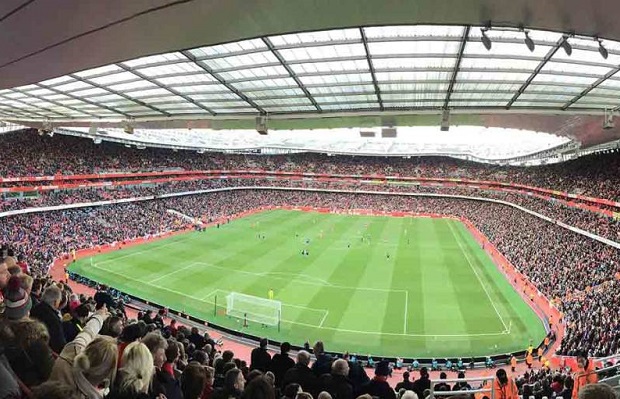- Arsenal interested in signing Inter star Carlos Augusto
- Sesko drops big Arsenal hint after Instagram move
- Myles Lewis-Skelly signs long-term contract with Arsenal
- Partey set to leave Arsenal after contract talks collapse
- Arsenal eye move to sign PSG star Bradley Barcola
- Arsenal agree deal to sign Brentford’d Christian Nørgaard
- Arsenal make ‘significant’ progress to sign Rodrygo Goes
- Arsenal make enquiry about signing Jadon Sancho
- Arsenal set to sign Kepa from Chelsea this week
- Arsenal prepare new Gyökeres before pre-season
Was 2024‑25 One of the Weakest Premier League Seasons in 20 Years?
The 2024‑25 Premier League season, on paper, resembled a familiar journey: Liverpool crowned champions, Manchester City, Arsenal, and Newcastle jockeying for the upper positions. But beneath the surface, a pattern of mediocrity, unpredictability, and dwindling competition raised valid questions about whether this was one of the weakest campaigns in recent memory.
1. Title Race: A One-Horse Affair
A hallmark of a thrilling Premier League season is a closely contested title race that goes down to the wire. Instead, Liverpool seized control early and never looked back. Under first‑year manager Arne Slot, they surged to the top by late September and clinched their 20th league title with four games to spare.
By the closure of April, Liverpool held an unassailable lead. That early decider—FINISHING the contest weeks in advance—stripped away tension and vibrancy from the season’s final stretch . Understandably, fans with Liverpool tickets rejoiced, but the stark predictability undercut the drama that typically defines elite domestic leagues.
2. Relegation: A Foregone Conclusion
Just as the title chase lacked suspense, the relegation fight collapsed into predictability. For the second consecutive season, all three promoted teams—Leicester City, Ipswich Town, and Southampton—were relegated immediately, marking only the third time this has happened in Premier League history.
Worse, all three were mathematically doomed with at least four matches remaining, an unprecedented early demise. The bottom of the table lacked the gripping scrap fans expect—no last-day survival stories, no miraculous escapes. Instead, the season offered a series of foregone conclusions.
3. The Big Six: Historic Underperformance
Manchester United
Manchester United suffered an implosion. Managerial changes—Erik ten Hag in October, Ruben Amorim in November—did nothing to stem a dramatic decline. The Red Devils ended with just 42 points, their fewest in Premier League history, and 18 losses, the most since 1973‑74 .
Old Trafford became a fortress only in name, as United conceded nine home defeats, matching their historical worst . Their 15th-place finish dwarfed past disappointments, with pundits calling this season United’s worst era since the club’s near-relegation in the early 1970s.
Tottenham Hotspur
Tottenham fared no better. Under Ange Postecoglou they ended 17th—their lowest top-flight finish since 1977—while setting a record low points total (38) in the Premier League era. Though supporters with Tottenham tickets salvaged some pride by winning the Europa League, their domestic performance was abysmal.
4. Champions League Race: Tepid at Best
Nearly all attention shifted instead to the battle for Champions League qualification—the only segment of the league with any real intensity. Yet even that fizzled out in dull predictability. Manchester City, Arsenal, Newcastle, and Chelsea secured places in the top four—all in line with pre-season expectations . There were no surprise qualifiers, no underdog stories. The expected names filled the top positions, leaving little to be excited about.
5. Statistical Lows and Apathy
Several objective metrics highlighted how dire this season was:
- The gap between first and second place reached 16 points, one of the widest on record at this stage of competition.
- Relegated teams averaged 0.55 points per game, the lowest per‑game average for any trio in top-flight history.
- The collapse of the “Big Six” reduced the league’s competitive edge dramatically.
Even VAR controversies and managerial instability plagued attempts to salvage quality.
6. A Few Highlights, But Not Enough
That’s not to say the season was devoid of entertainment. Moments like Nottingham Forest’s European qualification push and Crystal Palace winning the FA Cup offered bright sparks. And Liverpool’s dominance under Slot and Salah’s goal-scoring feats carried some glamour.
Yet these were exceptions—highlights in an otherwise uninspired canvas. The lack of meaningful battles at both ends of the table substantially diluted the league’s traditional allure.
Final Verdict
Compared to the frantic title races, relegation scrambles, and unpredictable finishes of the past, the 2024‑25 Premier League season felt underwhelming. Liverpool’s runaway title, predictable relegations, and historic underperformance by giants like Manchester United and Tottenham contributed to a sense of emptiness.
More than a few pundits have remarked this may be among the weakest Premier League campaigns of the last 20 years . If the Premier League is to reclaim its reputation as a fiercely competitive spectacle, summer reinforcements—financial investment, managerial thinking, VAR reform—must prove more than talk.
What Supporters Say
Fans and media sentiment expressed widespread disappointment:
A sentiment that top clubs lacked identity and consistency, with VAR errors compounding frustrations .
Supporters failed to witness the “Clasico-style” excitement of previous seasons—Liverpool vs City, Arsenal vs United—highlighted as sorely missed .
Manchester United fans lamented a season of “insipid performance” and off-field disarray, culminating in Europe’s absence .
Looking Ahead to 2025‑26
The upcoming season must remedy the deficiencies:
- A tighter title race could restore belief.
- Promoted teams need tools to avoid instant relegation.
- Financial powerhouses must invest wisely to elevate the big six back into contention.
- VAR transparency, managerial clarity, and fewer predictable outcomes will be essential.
An enthralling Premier League requires unpredictability, imagination, and fiercely contested battles from top to bottom. The 2024‑25 season fell short—an unintentional testament to what happens when the standard expectation isn’t met.





